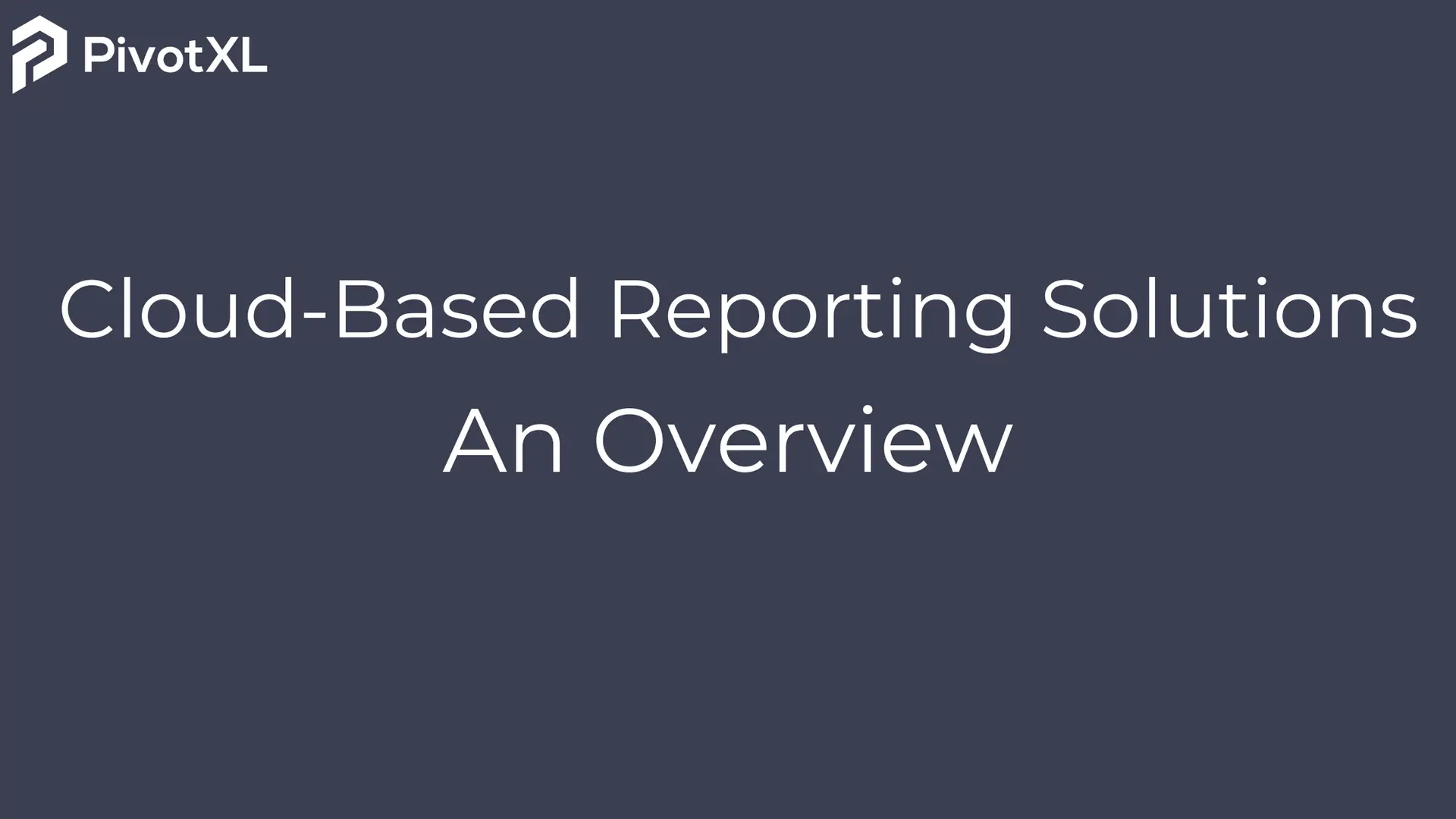In today’s fast-paced business environment, data-driven decision-making is more crucial than ever. However, the complexity of managing and analyzing vast amounts of data can overwhelm organizations. This is where cloud-based reporting solutions come into play, transforming the way businesses store, manage, and analyze data.
Cloud-based reporting tools offer a host of benefits, including scalability, real-time access, cost-effectiveness, and enhanced collaboration. Let’s delve deeper into why these solutions are becoming a game-changer for businesses of all sizes.
What Are Cloud-Based Reporting Solution?
Cloud-based reporting solution are software platforms that allow businesses to create, manage, and share reports and dashboards through the cloud. These platforms typically integrate with various data sources, including CRM systems, ERPs, databases, and external applications. The cloud infrastructure enables users to access reports from any device, at any time, without the need for on-premise infrastructure.
Key Benefits of Cloud-Based Reporting Solution
- Real-Time Data Access
Cloud-based reporting solutions enable businesses to access real-time data and analytics, allowing decision-makers to stay updated with the latest information. This helps in faster decision-making, improving business agility. - Cost-Effective and Scalable
With cloud-based solutions, businesses can save on the costs associated with maintaining physical servers, hardware, and IT staff. Additionally, these solutions offer scalability, allowing organizations to expand their data storage and computing power as needed. - Enhanced Collaboration
Cloud reporting tools promote collaboration by allowing team members across different locations to access and share reports easily. This ensures that everyone is on the same page and enables better communication across departments. - Data Security and Backup
Security is a priority with cloud-based solutions. Most platforms offer robust encryption, secure data centers, and automated backups, ensuring that business data remains protected from threats and is always recoverable. - Customization and Flexibility
Cloud-based reporting solutions come with customizable features that cater to various business needs. Whether you need custom dashboards, specific report formats, or automated scheduling, these platforms can be tailored to suit your requirements. - Integration with Other Tools
Integration with other business tools such as CRM, ERP, and marketing automation software enhances the power of cloud-based reporting. Seamless integration ensures that data flows effortlessly across systems, providing accurate insights for better decision-making.
Popular Cloud-Based Reporting Solution
Several cloud-based reporting tools cater to different business needs. Some of the most popular options include:
- Google Data Studio: A free, user-friendly platform that integrates with Google Analytics, Google Ads, and other Google services. It allows users to create customizable reports and dashboards.
- Tableau: Known for its powerful data visualization capabilities, Tableau offers both cloud-based and on-premise solutions, enabling businesses to create sophisticated visual reports and share them in real time.
- Power BI: Developed by Microsoft, Power BI is a robust tool that integrates with various data sources, allowing users to create interactive reports and dashboards. Its cloud version offers easy sharing and collaboration.
- PivotXL: Streamlining Excel-Based Reporting: PivotXL is a cloud-based reporting solution designed to enhance the functionality of Excel by allowing users to create, manage, and share reports in a more efficient way. PivotXL enables businesses to harness the power of Excel while benefiting from the flexibility and scalability of cloud-based solutions. It simplifies complex reporting tasks, making it easier for users to create interactive reports, track key metrics, and collaborate seamlessly within teams.
- Zoho Analytics: A cloud-based business intelligence and analytics platform that offers advanced reporting and analysis capabilities. Zoho Analytics provides data blending, visualization, and customizable reporting features.
- Qlik Sense Cloud: A cloud-based version of Qlik Sense, known for its associative data model, self-service reporting, and integration with various data sources, making it a powerful option for businesses seeking data insights.
Why Businesses Should Adopt Cloud-Based Reporting
Cloud-based reporting solutions enable businesses to enhance efficiency, gain insights quickly, and make data-driven decisions that propel growth. Whether it’s through cost savings, improved accessibility, or the ability to make faster, informed decisions, the cloud is reshaping the future of business reporting.
Adopting cloud-based reporting tools helps businesses stay competitive in an increasingly data-centric world. These solutions offer businesses the ability to manage and analyze their data in a way that is efficient, secure, and scalable, while also promoting collaboration and streamlining decision-making processes.
Conclusion
In summary, cloud-based reporting solutions are revolutionizing the way businesses handle data management and reporting. With their numerous advantages, such as cost-effectiveness, scalability, real-time access, and enhanced collaboration, they offer businesses the tools needed to make smarter, faster decisions. By leveraging these platforms, businesses can stay competitive in a world where data is key to success.
Are you ready to transform your reporting processes with the cloud? Explore the various cloud-based reporting solutions available today and take your business analytics to the next level.




